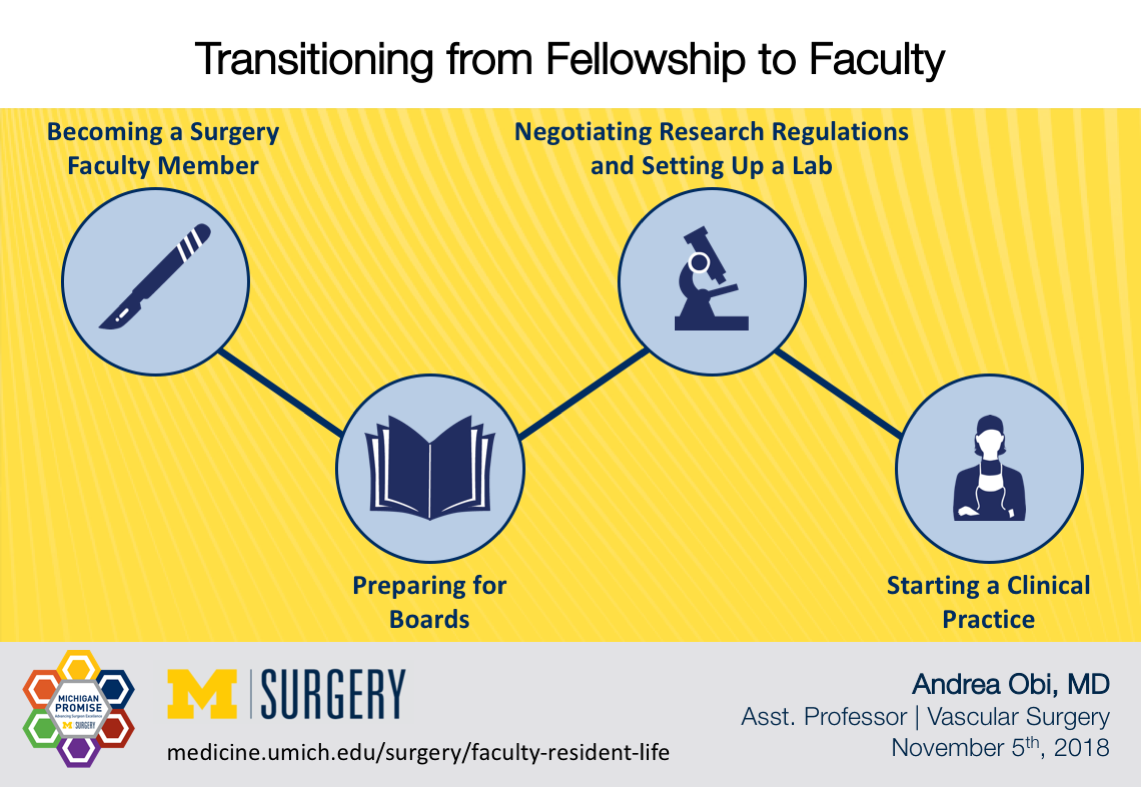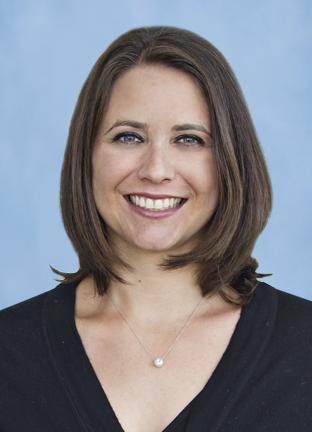

Becoming a Surgery Faculty Member
Surgical training is amongst the longest and most arduous courses available to the medical school graduate. The hours are long and the emotional, mental and physical toll can be palpable at times. A common phrase within my residency class when things were particularly tough was “anyone can do anything for a month [insert hour, day, year].” It was certain that on the other side of residency and fellowship graduation lay the promised land of attendinghood. What immediately became apparent after making this transition from senior fellow to faculty was that the first clinical year would be one of the most stressful and defining years my (very young) career. To use an analogy, it was akin to being on the steepest and most uncomfortable part of the learning curve: hanging on with fingernails at times! The clinical care of patients, the focus of years of residency training, becomes just a slice of the stressor pie, competing with administrators, regulatory requirements, research pursuits, fulfillment of educational obligations and family/spouse needs.
Over the past year, I found that relying on my colleagues, mentors, sponsors and husband became the key to problem solving and getting “real life” on track. I remember driving to work and hearing on a podcast the phrase “if you are not winning, you are learning.” I did a lot of learning this year! I compiled below a list of a few key milestones in the first year with some things I did well and some things I wish I had done differently. I hope this is useful to those preparing to make the transition.
Preparing for Boards
Most surgical subspecialties have written and oral boards. One of the best things I did was turn in my application to the American Board of Surgery early – on the first day it was allowed. My application was processed immediately (within hours of receipt!) and I registered for my written exam. At that time (May I believe), I also blocked the dates on my calendar for the written and oral exams the following year. This allowed me to remember to block a few days during those months for studying. One of my good friends did not do this and ended up scheduling his wedding during the one exam date for his specialty! It is really stressful to fail/have to repeat the board exam, so my advice would be to take the time to invest the amount of time you need up front. I was unrealistic about how much other academic work I could get done in this context, and if I had to do it differently, I would grant myself some grace about how much else could be accomplished during the few weeks leading up to these exams.
Negotiating Research Regulations and Setting Up a Lab
When I started out I anticipated this would take me about 2 weeks. Fast forward …. And it took about 10 months to get the first few experiments done! A few valuable lessons came out of this year. One was that the regulations regarding animal research are far more complicated than I could have realized as a research fellow or student working in someone else’s lab. Preparing an IBC and IACUC protocol is the equivalent of writing a full text basic science paper. Having access to my mentor’s protocol and having a contact at ULAM were key in figuring out exactly how to go about this. Second, I thought that doing experiments myself would save research funds. Wrong! The life of a surgeon is too unpredictable and cancelling experiments can be expensive and frustrating. After several months I hired a PhD who keeps the lab running and has additional skill sets that complement my own. We have a great partnership and now I can’t imagine life without her!
Starting a Clinical Practice
My husband, a general surgeon who has been in practice 10 years, warned me that the first year I would be nervous during about 90% of the cases, this would drop to 50% during the second year and about 5% thereafter. It was good to know that this feeling was normal and would dissipate. Getting in the OR and doing hard cases is key to mastering skill sets formed during residency and fellowship, and getting rid of that uncomfortable feeling. I realized quickly that having clinical mentors who I could ask an opinion from were key. They became a go-to and helped me perform my own personal M&M when things didn’t go as planned. Also, having a bail-out plan (vascular surgery is ~30% emergent or urgent cases) ahead of time and deciding when to stop was key to controlling the case. In the clinic and the OR, just learning the names of everyone on the team and a little bit about them personally has helped to create a supportive environment that offsets some of the stress that is innate to the problems we and our patients face.
Article by Andrea Obi, MD (Twitter: @AndreaObiMD)
Downloads

Andrea T. Obi, MD
Contact Us
Reach out to join the conversation or to learn more about how to implement the Michigan Promise. Connect with the Department of Surgery or our faculty on Twitter to share your ideas or get in touch with the Office of Faculty & Resident Life to schedule a Michigan Promise presentation at your institution. You can also fill out our Michigan Promise Inquiry Form with any questions or comments.
Department of Surgery
2210F Taubman Center
1500 E. Medical Center Dr.
Ann Arbor, MI 48109
Phone: 734-232-5528
Email: [email protected]
Twitter: @UMichSurgery
Hashtag: #MichiganPromise
Related Media:
- Michigan Promise Achievement Video
- Raising Global Health Awareness: Second Annual Michigan Center for Global Surgery Symposium
- Surgical Innovation Prize & Development Accelerator Course
- The Resident Development Program: Trust and Purpose
- Mini-Sabbatical Program Reflection: An Exploration of Surgical Ethics
